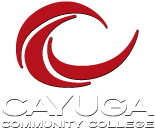COMPUTER HARDWARE/SOFTWARE DESIGN A.A.S.
This program provides a foundation in the design of computer hardware and software. It combines the electronics of hardware design with the problem-solving and logic skills of software design. It offers exciting and rewarding opportunities in the rapidly developing computer hardware/software industry.
PROGRAM LEARNING OUTCOMES
- Develop modular programs with proper documentation and error-trapping
- Utilize methods involved in analyzing and designing information systems
- Effectively utilize the major tools of Microsoft Office Professional, including spreadsheets, databases, word processing, and presentation programs
- Understand electrical terminology and component recognition
- Interpret manufacturers’ technical data sheets on components
- Interpret electrical schematics
- Build, test, and troubleshoot Analog and Digital electrical circuits on breadboards
- Effectively communicate technical information to appropriate audiences
CAREER POSSIBILITIES
Entry-level positions for technicians in various fields of computers, including programming, computer operations, communications, computer science, and automation.
TRANSFER INFORMATION
Students planning to transfer should contact their advisor and the Coordinator for Transfer and Articulation in the Centers for Student Engagement and Academic Advisement for more information. Early consultation to plan the most appropriate course sequence will optimize transferability.
DEGREE REQUIREMENTS
This curriculum provides the knowledge and skills in hardware and software needed to enter a professional career in computer design.
The curriculum listed on this page represents the minimum coursework required for the AAS degree in Computer Hardware/Software Design. The chair of the Division of Natural and Health Sciences, Mathematics, and Technology must approve any exception in writing.
A background in algebra and trigonometry is recommended.
| COURSES | CREDIT HOURS | |
|---|---|---|
| FIRST SEMESTER | ||
| ENGL 101 | Freshman English I | 3 |
| CS 120 | Foundations of Computer Science | 3 |
| ELEC 101 | Electrical Circuits | 4 |
| ELEC 105 | Introduction to Digital Computers | 4 |
| MATH 104 | College Algebra (or higher) * | 3 |
| 17 | ||
| SECOND SEMESTER | ||
| ENGL 102 | Freshman English II | 3 |
| ELEC 102 | Basic Electronics | 4 |
| ELEC 107 | Fundamentals of Microcomputers | 4 |
| CS 200 | Programming in Visual Basic | 3 |
| MATH 106 | Pre-Calculus | 3 |
| 17 | ||
| THIRD SEMESTER | ||
| BUS 225 | Microcomputer Application Software | 3 |
| CS 080 | Microcomputer Maintenance | 1 |
| CS 222 | Programming in C/C++ | 3 |
| General Education DEISJ | 3 | |
| General Education Natural Sciences and Scientific Reasoning | 3 | |
| Health or Physical Education | 1 | |
| 14 | ||
| FOURTH SEMESTER | ||
| BUS 226 | Advanced Microcomputer Application Software | 3 |
| CS 225 | Introduction to Networks | 3 |
| CS 238 | Java | 3 |
| General Education Social Science | 3 | |
| Technical Elective ** | 3 | |
| 15 | ||
| TOTAL CREDIT HOURS | 63 | |
* MATH 112, 115, 116 or 121 will not fulfill Math requirement.
** Must be one of the following: CS 219 Database Management Systems, CS 228 Introduction to Unix/Linux, CS 235 Web Page Design, CS 236 Advanced Visual Basic, CS 237 Internet Security, ELEC 209 Programmable Logic Controllers
A prior felony conviction may hinder a student’s ability to enroll in a course or complete the requirements of certain academic programs and/or meet the criteria for licensure required by certain professions.
